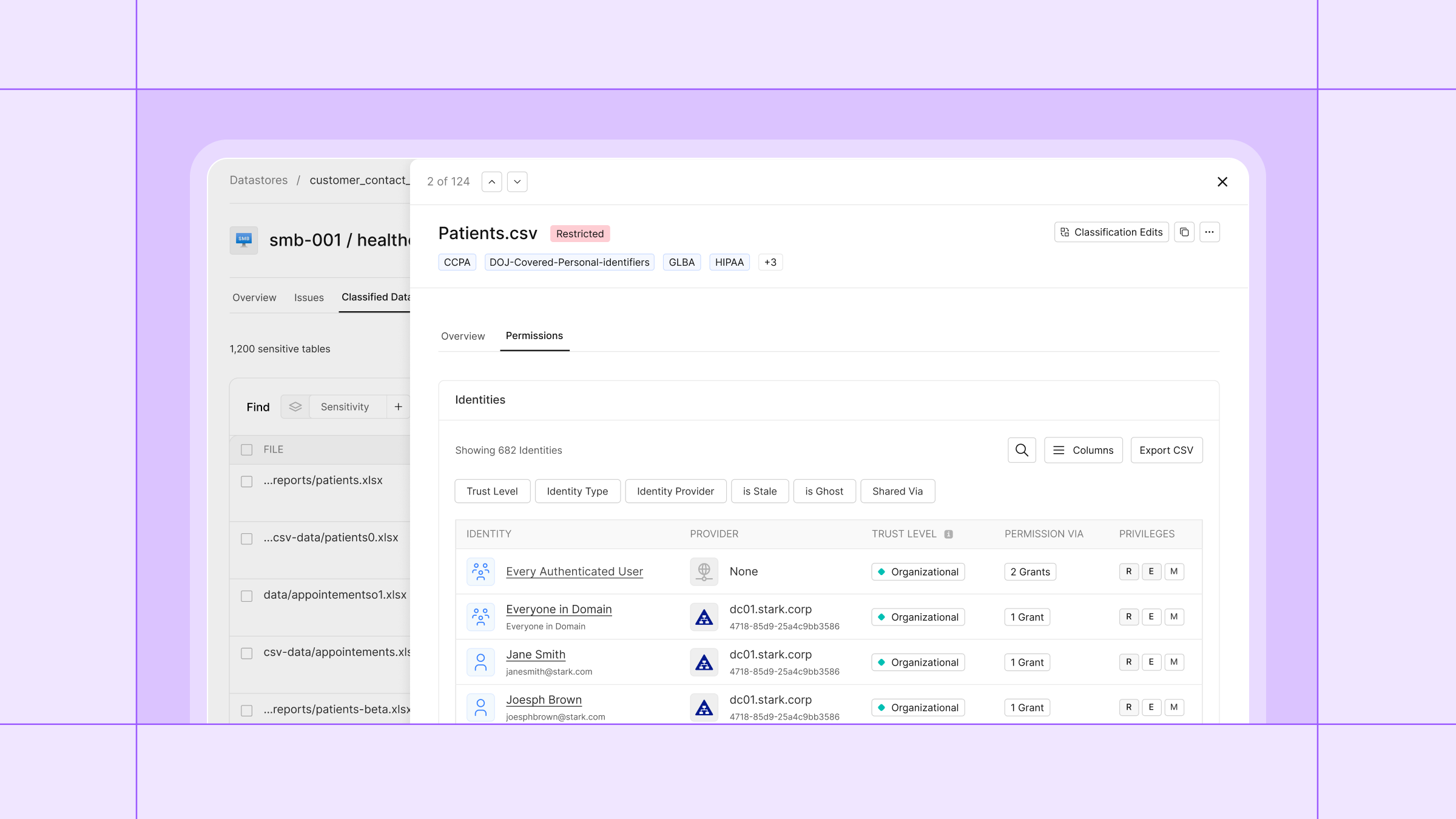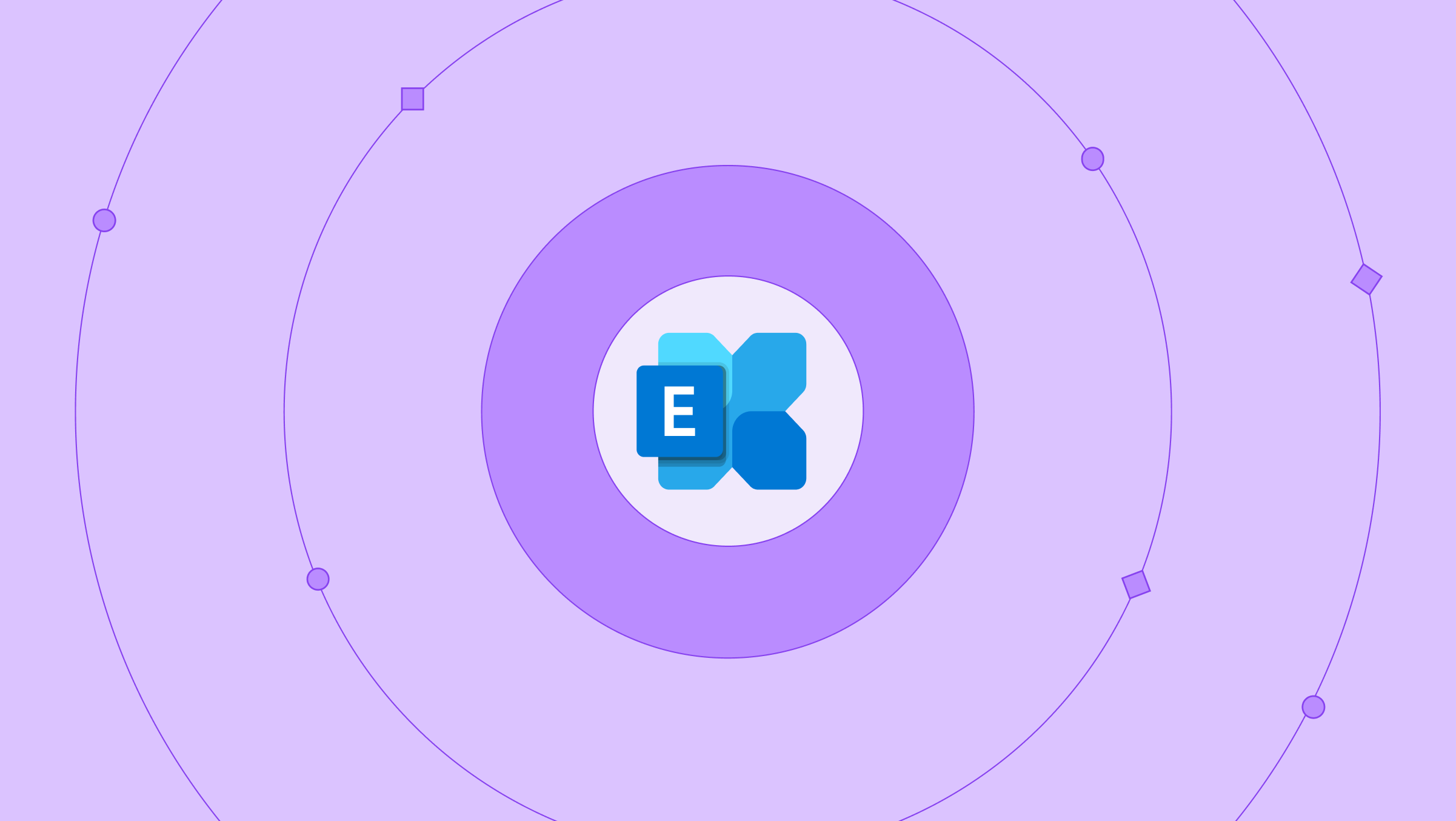Don’t Shop for Cyber Insurance without Cyera

No one wants to be the victim of a data breach. But to add insult to injury, just imagine being told by your cyber insurance company that they won’t cover your claim. Maybe you didn’t train your staff to spot phishing emails, and someone in your organization accidentally downloaded malware. When large corporations with significant risk profiles are spending tens or even hundreds of thousands of dollars a year on cyber insurance policies, that’s a costly mistake to make.
Cyera is helping companies avoid unfortunate outcomes like this, by developing a data security posture that can minimize both your cyber insurance premiums and your risk of having a claim denied. And it all starts with knowing your data.
Right-sizing your cyber insurance policy
Knowing your data means understanding what data you have, where it resides, who has access to it, and what they’re doing with it. After all, you can’t protect what you can’t see. Cyera’s DSPM doesn’t just discover all of your organization’s data. Its AI-native design lets it understand the “DNA” of your data, classifying them based on pre-trained categories aligned with various regulatory and industry standards, as well as classification schemas unique to your organization. And it can do all this with 95 percent precision.
With Cyera in place, your organization can make a much more thorough and accurate inventory of its data assets. That’s essential for determining what policy best fits your coverage needs. Guesstimating the size of your data estate based on the number of databases and the volume of data they store could result in underestimating the true amount of data you’ve got, or leave you with a gap in coverage for particularly sensitive data you didn’t realize you had. Or you could overestimate the size of your data estate, and end up paying for coverage you don’t need.
Cyera is helping its customers discover petabytes of data they didn’t even know existed. A lot of this is duplicate, stale, or ghost data that ought to be destroyed. Some of it is sensitive data that’s been left in an unsecured state. By simplifying and accelerating the process of data discovery, classification, and minimization, Cyera is helping its customers figure out exactly what coverage is right for them, while also meeting the exacting data security standards insurers want to see.
An ounce of prevention
When the idea of cyber insurance was first proposed, some feared it would create a moral hazard if companies could shift the risk of a data breach to a third party. But in practice, cyber insurance reduces the risk of a breach since insurers expect their insureds to have a relatively mature data security posture before they’ll write a policy.
There are a lot of best practices that insurance companies recommend if you want to save money on your premiums and reduce the risk of having a claim denied. These include things like:
- adhering to a strong cybersecurity framework like NIST CSF or ISO 27001,
- implementing multi-factor authentication,
- demonstrating compliance with applicable regulations and industry standards,
- maintaining secure backups,
- performing vulnerability management and penetration testing,
- having a robust and documented incident response and recovery plan, and
- being prepared to provide timely notification of a breach to all stakeholders, including data subjects, regulators, and the insurance company itself.
Cyera assists with many of these practices. In addition to discovering and precisely classifying data in accordance with applicable regulatory categories like PII, PHI, etc., Cyera also monitors your data estate, logs data events, and can be configured to alert when vulnerabilities are detected. Cyera can automatically mask sensitive data like credit card numbers, for example, and sends messages via email, Slack, or other channels to let data owners know about policy violations, including instructions for remediation.
Cyera integrates with third party tools to help with identity and access management and incident response. By integrating with identity providers like Okta and Ping, Cyera can build a catalog of all entities with access to your data, whether human or non-human, internal or external. It can detect stale identities that still have access to sensitive data, or when users have disabled strong authentication requirements like MFA. And by integrating with various SIEM tools, Cyera facilitates automated incident response. Finally, through its integration with backup provider Cohesity, Cyera can help your organization ensure the integrity and availability of critical backups during the recovery process.
In addition to helping its customers implement strong data security controls, Cyera is also helping them plan their data security strategy, including what to do in the event of a data breach.
Leveraging its DSPM, various threat intel feeds, and virtual CISO-led evaluations of critical controls derived from common security frameworks, Cyera’s Data Risk Assessment service identifies gaps in your organization’s data security posture and recommends concrete measures to mitigate them. And its Breach Readiness service helps you plan your incident response strategy by identifying your top data risks and gauging the potential blast radius of a breach. It can show you how your organization would respond in the event of a breach, and recommend pro-active steps to reduce the likelihood of a material breach, as well as streamline your response.
The intelligence and context provided by these services accelerate the process of determining the materiality of a breach, the appropriateness of your response, and the scope of disclosures to regulators like the SEC. They also simplify the process of filing a claim and getting it resolved.
Knowing is half the battle
There’s no such thing as 100 percent security. Data beaches will happen. But by leveraging Cyera for their data discovery, classification, and minimization efforts, companies are shrinking their attack surfaces and reducing the likelihood that a security incident could turn into a material breach - and saving a lot of money on reduced data storage costs to boot. In the event a breach does occur, they’ll be able to show insurers the concrete, verifiable steps they took to identify and mitigate pre-existing vulnerabilities in their data ecosystem.
Before AI, getting such a clear and comprehensive picture of a large enterprise’s data estate would have been impossible, which is why Cyera’s AI-native DSPM is revolutionizing data security. But on the other side of that revolution, insurance companies are going to need more than an ISO certification and your best guess as to the volume and nature of the data under your control. They’re going to ask: do you really know your data? When they do, Cyera will ensure you have a good answer.
Get a demo and see how Cyera can help you in your data security journey.
Gain full visibility
with our Data Risk Assessment.



